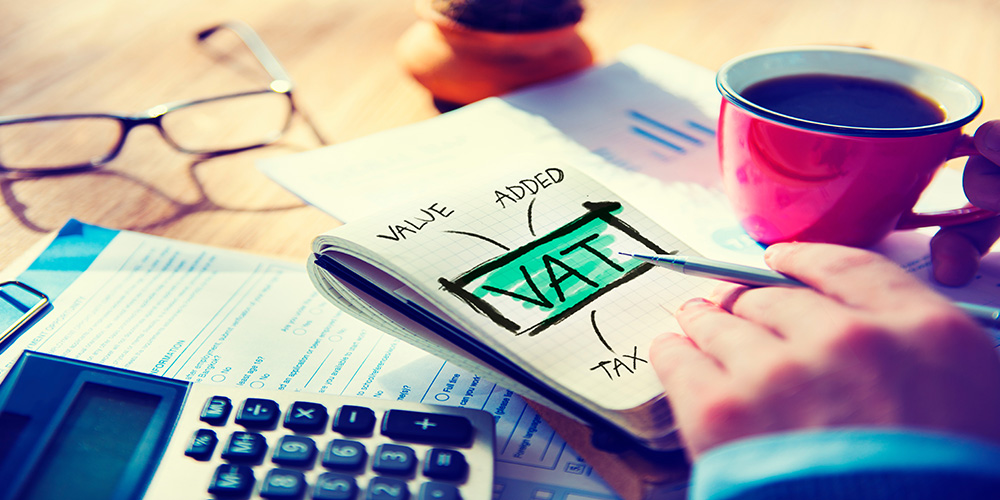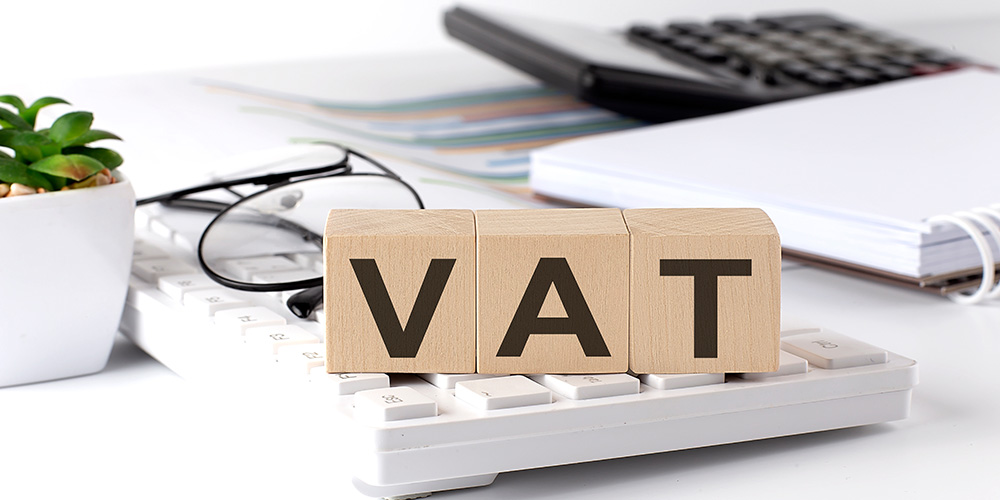Since HMRC introduced the new VAT penalty regime in January 2023, we’ve observed an increase…

A contractor’s guide to VAT
If you are new to contracting or considering setting up a limited company, you may wonder how VAT works. We’ve created a contractor’s guide to provide you with an overview of VAT, what it is, and the various schemes available.
What is VAT?
Value Added Tax (VAT) is a tax added to most goods and services sold by VAT-registered businesses in the UK. You can claim VAT on all expenditures if your business is VAT-registered. It is important that you keep receipts for any purchases on which you want to reclaim VAT. Receipts show value added tax as a separate value from the purchase cost, so you don’t need to work it out, which makes things very straightforward.
Businesses have to register for VAT if their VAT-taxable turnover is more than £90,000 – you can voluntarily register for VAT if your turnover is less than £90,000.
There are three different rates that can be added to products. The rate that applies to your business will depend on the services or goods and how they’re used:
- Standard rate – 20% and is applied to most goods and services
- Reduced rate – 5% and is applied to some goods and services, e.g. home energy and children’s car seats
- Zero rate – 0% applied to zero-rated goods and services, e.g. children’s clothes and most food
Your responsibilities as a VAT-registered business
Your responsibilities include:
- Include value added tax in the price of all services and goods
- Keep a record of the amount of value added tax you pay for things you buy for your company
- If you import goods into the UK, make sure you account for value added tax
- Send a VAT return to HMRC reporting the amount of value added tax you paid to other businesses and the amount of value added tax you charged your customers
- Pay any value added tax you owe to HMRC
Making Tax Digital and VAT
Making Tax Digital (MTD) is the government’s initiative to implement a fully digital tax system in the UK. MTD for VAT was introduced in April 2022. If you have a VAT-registered business, you are required to keep digital records and use MTD-compatible software to submit quarterly updates and file your VAT return. HMRC will automatically register all new VAT-registered businesses to MTD for VAT.
What are the other different types of VAT accounting schemes?
Aside from the standard value added tax accounting scheme, there are three other different VAT accounting schemes: the Flat Rate Scheme, the Cash Accounting Scheme and the Annual Accounting Scheme. Each scheme has different thresholds:
| Scheme | Threshold to join | Threshold to leave |
| Flat Rate Scheme | £150,000 or less | More than £230,000 |
| Cash Accounting Scheme | £1.35 million or less | More than £1.6 million |
| Annual Accounting Scheme | £1.3 million or less | More than £1.6 million |
Flat Rate Scheme
With the Flat Rate Scheme, you pay a fixed VAT rate to HMRC. Under this scheme, you simply pay a percentage of your taxable turnover. The amount of value added tax you pay will depend on your type of business and the industry you operate in, and it can range from 4% to 14.5%. If you’re in your first year as a VAT-registered business, you get a 1% discount. You’ll still have to charge value added tax on your invoices, but you don’t have to account for the VAT details of every purchase made.
Cash Accounting Scheme
If you opt for the Cash Accounting Scheme, you pay VAT on the date your customer pays you as opposed to the date you send the invoice. You can reclaim VAT on a purchase when you have paid your supplier. The Cash Accounting Scheme isn’t always the best option for businesses that buy a lot of items on credit, as you can’t reclaim the value added tax until payment has been completed.
Annual Accounting Scheme
Unlike the standard value added tax accounting scheme, you don’t fill in quarterly updates; instead, you have one annual VAT report and payment deadline. Once you submit your VAT return, you make advance quarterly payments towards your VAT bill based on your last return (or estimated if you’ve not submitted a return before). When you submit a VAT return, you’ll either make a final payment (the difference between your actual VAT bill and advance payments) or apply for a refund if you’ve overpaid your VAT bill. The Annual Accounting Scheme would not suit your business if you regularly reclaim value added tax because you’ll only be able to get one refund a year (when you submit the VAT Return).
Why do people voluntarily register for VAT?
A business can voluntarily register for VAT if its taxable turnover is below £90,000. Like any business decision, this depends on your own unique circumstances. Some businesses find that voluntary registration is worthwhile because it helps them be more tax-efficient. This is because the seller charges value added tax, so you’ll pay VAT even if you’re not registered for it yourself. If a business is VAT registered, it can also claim back the value added tax it pays on purchases – as long as the amount it pays out is higher than the amount it collects on sales in the same period.
The question of voluntary VAT registration being tax efficient depends on the things that your business buys and sells. If your business buys lots of things that are subject to value added tax, but the things it supplies are not, you’ll regularly pay more VAT on purchases than you charge on sales. This means that making a voluntary registration for VAT would allow you to claim back the difference between the two instead of just paying the value added tax.
Schedule a consultation to discuss your limited company accountancy requirements
Regardless of whether you’re a director of a limited company, a sole trader or an SME, ensuring your tax affairs are managed effectively and compliantly is incredibly important in the digital age. Churchill Knight & Associates Ltd’s accountancy software is equipped to handle all clients’ VAT record keeping and reporting to ensure your tax affairs are stored and submitted in line with MTD legislation.
To learn more about our accountancy service or to arrange a consultation to discuss your accountancy requirements, please call 01707 871622. Alternatively, you can schedule a consultation for a time that suits you, and a team member will be in touch to discuss the service and answer any questions you may have.


Comments (0)